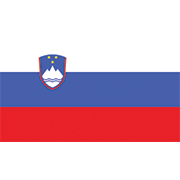Fiscal subject related
The mandatory delivery of receipts to consumers, which was previously in effect in Slovenia from January 2, 2016, until January 22, 2022, is once again created in the proposed amendment. A Value Added Tax (VAT) Law Amendment went into effect at that time. It states that the taxpayer must only provide the consumer with the receipt in paper form upon the consumer's request. The new plan states that failing to give the receipt to the consumer after it has been given to them will constitute a tax offense for which a fine will be assessed.
The plan not only calls for the mandatory transfer of receipts, but it also directs the consumers (service recipients) to take possession of and retain the given receipt as soon as they leave the taxpayer's business premises. They must transmit it for control purposes at the request of a designated person. A 40-euro fine is also set for the consumers in the event of a misdemeanor.
According to the government's proposal, the scale of the gray economy should be constrained by the mandatory supply of receipts. Additionally, they seek to provide the conditions for honest competition on the market, guarantee the equitable distribution of tax burdens among taxpayers, and maintain tax revenue.
It should also be more likely that the delivery of receipts will once again be required based on a comparison of data from the tax offices about the number of issued and approved receipts in 2019 and 2022. Data from the Ministry of Finance shows that there were fewer tax-approved receipts in 2022 than there were in 2019.
Other news from Slovenia
Fiscalization Update in Slovenia v3.1: New Technical Documentation and Mass Business-Premise Registration Service Now Released
 Slovenia
Author: Vukašin Santo
Slovenia
Author: Vukašin Santo
A new technical documentation version 3.1 has been released, introducing updates to business-premise registration in the production environment and adding a new service for mass registrations. The updated developer instructions provide revised specifications and guidance to help stakeholders adapt their systems, further improving efficiency and integration within the fiscalization process A new ve... Read more



New document was uploaded: S4F backoffice installer
S4F backoffice installer is intended for users who are installing the software for the first time. Please make sure to obtain latest version of installer and to apply all subsequent patches that are released subsequently. This package contains instruction, release notes, changelog and software packages required for deployment of this software component. This version of the Backoffice installer supports the following countries: Austria, Bulgaria, Croatia, France, Italy, Poland, Portugal, Romania, Slovakia and Slovenia. Read more
Subscribe to get access to the latest news, documents, webinars and educations.
Already subscriber? Login


Slovenia Sets 2028 Deadline for Mandatory B2B e-Invoicing
 Slovenia
Author: Vukašin Santo
Slovenia
Author: Vukašin Santo
Slovenia mandates electronic invoicing for B2B transactions starting January 2028, encouraging businesses to prepare through pilot projects and process alignment. The decentralized model, requiring structured XML formats, aims to streamline operations, enhance VAT compliance, and reduce manual workload. Slovenia is preparing for a major digital transformation in business transactions, announcing t... Read more



Slovenia: Scheduled Maintenance on the eDavki System, November 8, 2025
 Slovenia
Author: Vukašin Santo
Slovenia
Author: Vukašin Santo
Urgent maintenance on the eDavki system will occur November 8, 2025, from 2:00 PM to 3:00 PM, possibly causing temporary disruptions. The Tax Administration has announced that urgent maintenance work on the eDavki system infrastructure will take place on Saturday, November 8, 2025, between 2:00 PM and 3:00 PM. Although no service interruption is expected, users may experience temporary disruption... Read more



Slovenia: FURS to Replace TLS Server Certificate in Fiscal Verification System on November 11, 2025
 Slovenia
Author: Vukašin Santo
Slovenia
Author: Vukašin Santo
The Financial Administration of the Republic of Slovenia (FURS) has announced that it will replace the digital server certificate used to establish the TLS connection for the fiscal verification system on November 11, 2025 The Financial Administration of the Republic of Slovenia (FURS) has announced that it will replace the digital server certificate used to establish the TLS connection for the fi... Read more



Slovenia Advances Digital Tax Transition: Updated FURS Documentation and Revised eInvoicing Timeline
 Slovenia
Author: Vukašin Santo
Slovenia
Author: Vukašin Santo
Slovenia’s Financial Administration (FURS) has released version 0.08 of the technical documentation for the “Record of Calculated VAT and VAT Deduction,” outlining key requirements for upcoming digital tax reporting reforms. The updated framework introduces mandatory electronic VAT record submission from July 2025 and B2B eInvoicing from January 2027, shifting data exchange to accredited providers... Read more



Fiscalization of Public EV Charging in Slovenia: Ensuring Tax Compliance and Transparency in Green Mobility
 Slovenia
Author: Vukašin Santo
Slovenia
Author: Vukašin Santo
Slovenia’s Financial Administration (FURS) mandates fiscal verification for all payments at public EV chargers, ensuring each transaction is recorded with a unique ID, electronic signature, VAT details, and total energy consumed. Read more
Subscribe to get access to the latest news, documents, webinars and educations.
Already subscriber? Login

